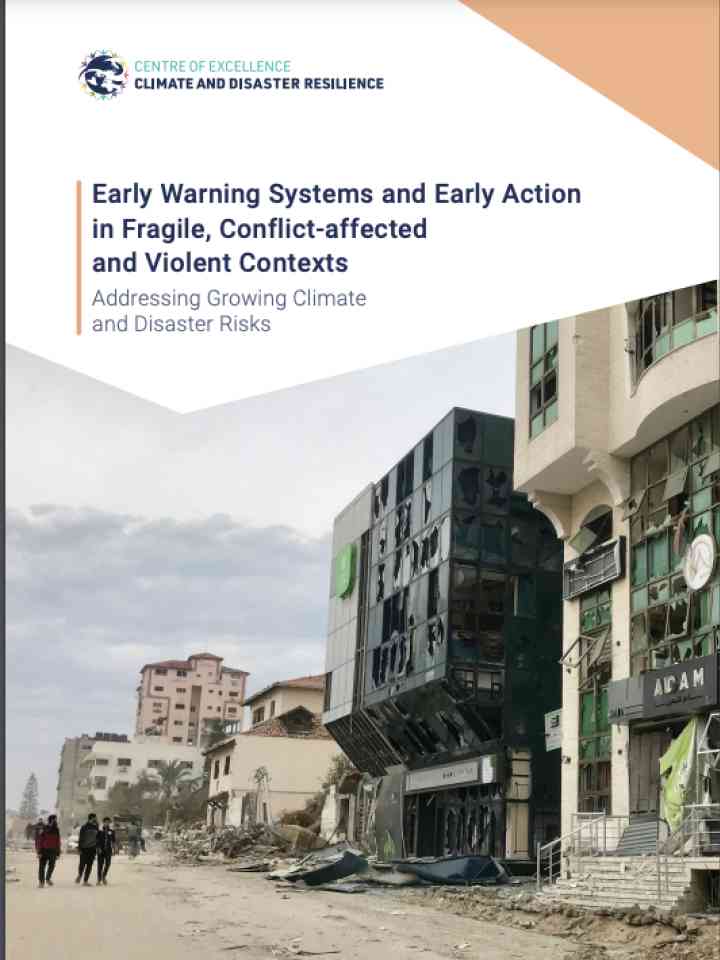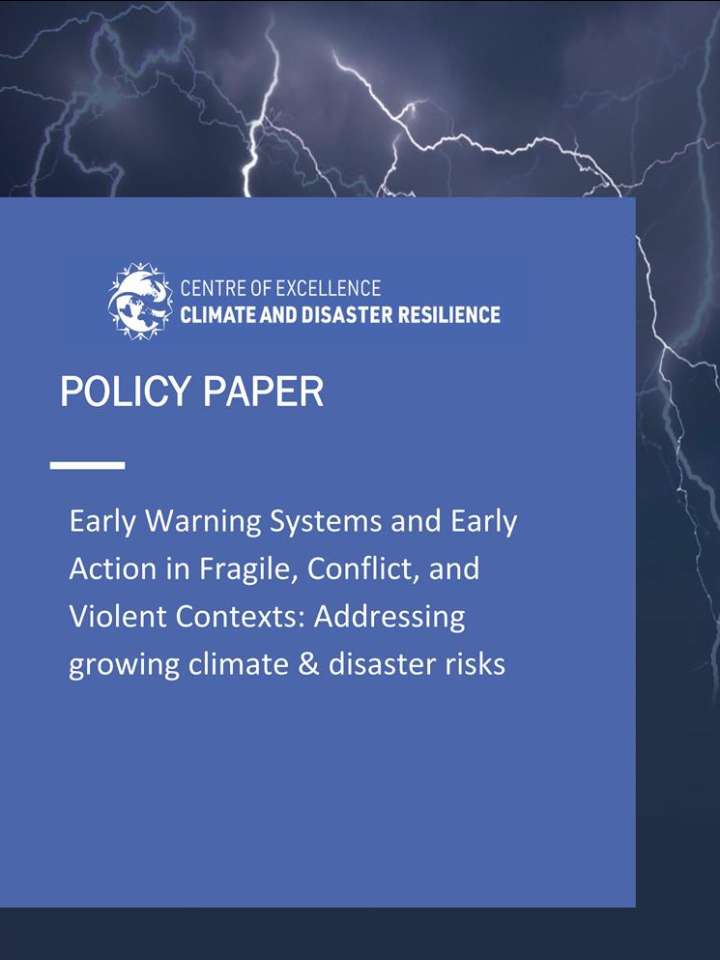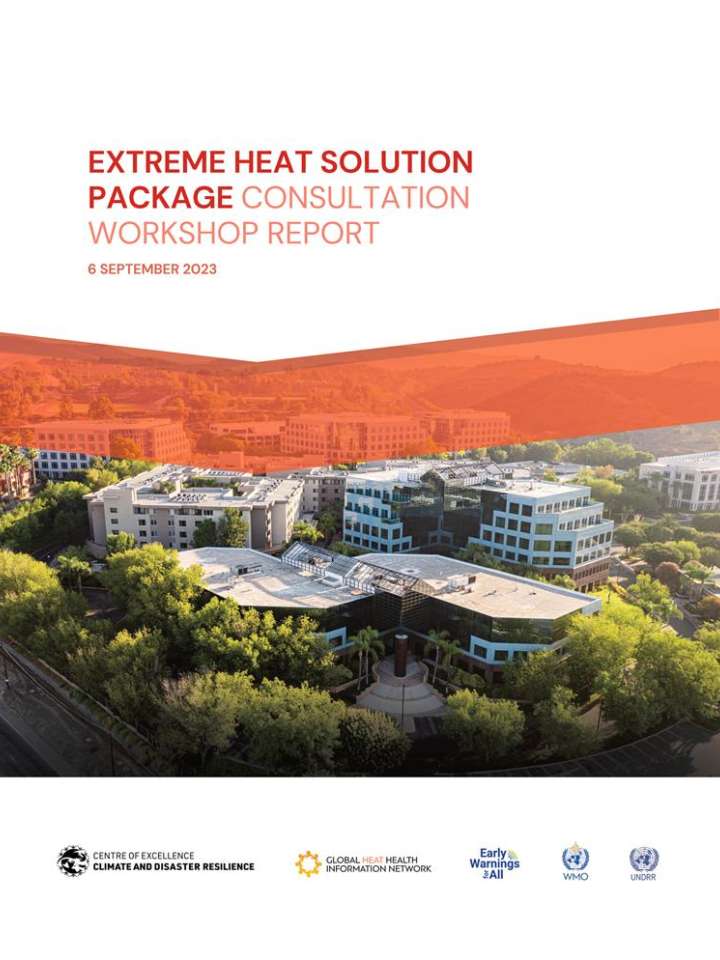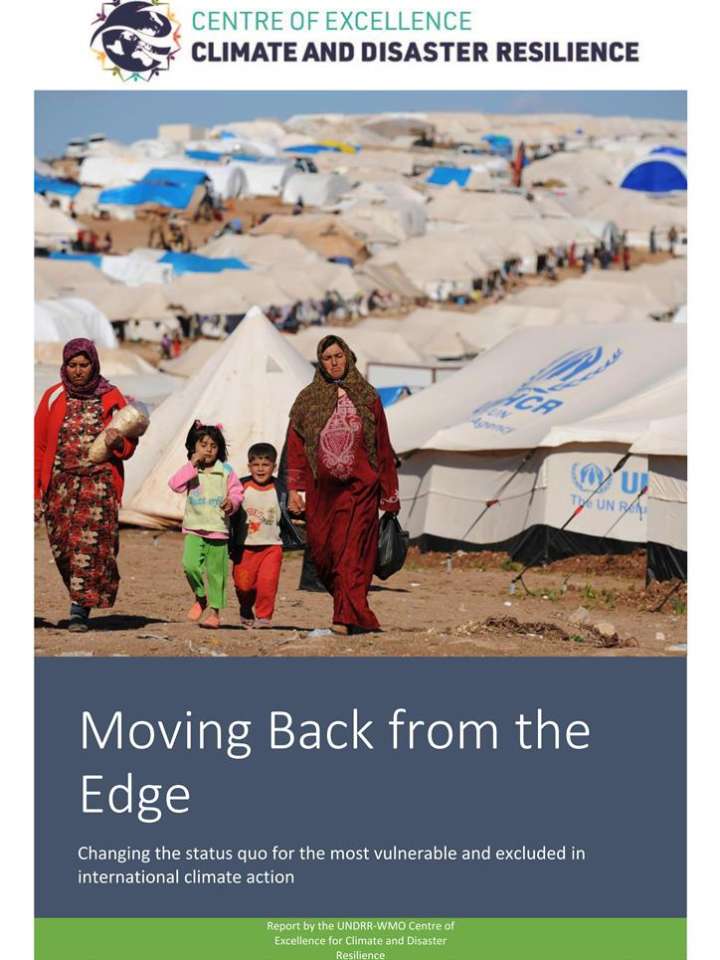Centre of Excellence for Disaster and Climate Resilience
The climate crisis is happening now. Those least responsible are the most affected. Hazardous events will only become more frequent and intense.
The enormity of current and future threats – including those emanating from a changing climate – requires course correction from a set of disconnected actions among sectors, disciplines, institutions and geographies, to more convergent, collaborative risk reduction and risk management approaches.
The Centre of Excellence for Disaster and Climate Resilience (CoE) was established by the World Meteorological Organization (WMO) and United Nations Office for Disaster Risk Reduction (UNDRR) to bring together its members and partners to assist aligned efforts in support of those most at risk in a changing climate.
The CoE offers partners a space to identify and explore common challenges and possible solutions, to learn from practice and research, and conduct advocacy in support of collective and collaborative action to reduce risks to humans and ecosystems – especially the most vulnerable.
Progress in the implementation of the 2015 agreements has stalled and, in some cases, reversed. A result of the COVID-19 pandemic, as well as short- versus long-termism, weakened multilateralism, disconnects between the real and the financial economies, rising inequality, and barriers between risk science, perception and risk-informed decision-making.
Risks are thus being created and accumulating faster than our ability to anticipate, manage and reduce them. When those risks are realized as shocks or disasters, they bring increasingly dire consequences for people, livelihoods, society and the ecosystems on which we depend – especially those most vulnerable.
Emerging from a series of stocktaking exercises in 2023 – including the Midterm Review of the Sendai Framework – and with the Summit of the Future in 2024, Member States have provided Calls to Action that will inform risk-sensitive actions supporting numerous global agreements and reviews, including those related to sustainable development, financing for development, climate, biodiversity, water, energy and food.
There has never been a greater need to come together to address growing risks.
Featured reports
CoE Membership
The CoE benefits from the participation and guidance of numerous international organisations, comprising both UN and non-governmental organisations, scientific and academic entities, and international financial institutions. These are listed in alphabetical order as follows:
- Food and Agriculture Organization (FAO)
- Group on Earth Observations (GEO)
- International Federation of Red Cross / Red Crescent societies (IFRC)
- The International Organization for Migration (IOM)
- International Science Council (ISC)
- United Nations Development Programme (UNDP)
- United Nations Education, Scientific and Cultural Organization (UNESCO)
- United Nations Environment Programme (UNEP)
- United Nations High Commissioner for Refugees (UNHCR)
- United Nations Institute for Training and Research (UNITAR)
- United Nations Office for the Coordination of Humanitarian Affairs (UNOCHA)
- United Nations University (UNU)
- World Bank (WB)
- World Food Programme (WFP)
Principles
- Working in a collaborative, transdisciplinary and integrated manner
At the heart of the CoE, is the recognition that the whole is better than the sum of its parts. As such, its modus operandi is built on collaboration as essential to the paradigm shift needed to ensure effective risk reduction and comprehensive risk management, and serving the most vulnerable. - Addressing underlying risk drivers
The CoE recognizes the critical need to address underlying drivers of risk – including poverty, inequality, exclusion, biodiversity loss and ecosystem degradation – thus moving beyond hazard-centric approaches to also address vulnerability, exposure, and coping capacity. - Prioritizing highly vulnerable and fragile contexts
The CoE recognizes that highly vulnerable and fragile contexts are disproportionately affected by shocks when risks are realized, not least the impacts of the changing climate. In some contexts, ability or agency to affect change to the drivers of such risks can be limited and funding for action in these contexts does not match the needs. As such, the CoE aims to identify and address the structural and non-structural barriers to effectively implementing risk reduction – including climate change adaptation – in vulnerable and fragile contexts.
Work
In line with the principles outlined above, the following are the current areas of work in 2023.
- Moving Back from the Edge
This publication presents case studies to illustrate transformative interventions to avert, minimize, and address loss and damage in highly vulnerable and fragile contexts. The report makes a case for a greater focus on vulnerability reduction as the common connector between humanitarian, DRR, and climate change actors and calls for a “vulnerability compact” to break down institutional silos and ensure those who are most at risk in the climate emergency are prioritized. - EWS-EA in Countries affected by FCV
The objective of the work is to identify the basic requirements for Early Warning Systems (EWS)-Early Action (EA) in contexts of fragility, conflict, and violence (FCV) to inform investments, coordination, collaboration, and action in favour of the most vulnerable. The result of extensive consultations with experts and competent authorities, this work recognizes that EWS-EA in FCV is key to get ahead of impending disasters – especially in contexts where local warning and response capacities are limited and can be quickly surpassed given pre-existing humanitarian needs. EWS-EA in FCV contexts must be adapted to the needs and challenging circumstances of all stakeholders across the value chain. Supporting realistic expectations and application is imperative in the co-design and co-production of EWS-EA for FCVs. - Solution Packages
The CoE recognizes that there is no silver bullet, nor ideal approach for addressing increasing disaster risk, including those emanating from a changing climate. Understanding and navigating the interrelationships, trade-offs, potential benefits and cascading consequences of different policy choices, instruments, investments, and implementation arrangements is becoming increasingly complex – not least with the deepening climate crisis. The sheer magnitude of needs, limited resources, and the urgency to deliver, to transform, can complicate even paralyse decision-making and practice. With this in mind, the CoE aims to enable solution pathways for countries and partners to chart convergent and collaborative action in reducing risk, and promote the health and wellbeing of people and planet in a changing climate. This will be delivered through solution packages which may be hazard specific. The initial focus is on extreme heat.
Coming out of the Midterm Review of the Sendai Framework and other global stocktaking exercises in 2023, and in anticipation of the Summit of the Future in 2024, the CoE is examining its programme of work for 2024 considering the principles above.
Organizational arrangements and governance
The Centre will be hosted within WMO HQ in Geneva and overseen by the Centre Steering Committee co-chaired by WMO Secretary-General and the Special Representative of the Secretary General for Disaster Risk Reduction and Head of UNDRR with senior representatives of the core-partner agencies. The Centre Steering Committee will be supported by working groups whose membership will be nominated by partner agencies and institutions. It is envisioned that experts nominated will be convened from: a) relevant national, international and regional organizations b) research institutes and academia, and c) policy, financial, environmental and fiscal sectors.
WMO and UNDRR are the core/lead partners for the initiation phase. Other relevant UN and other international organizations as well as technical and scientific organizations will be invited to engage after the launch of the centre.



